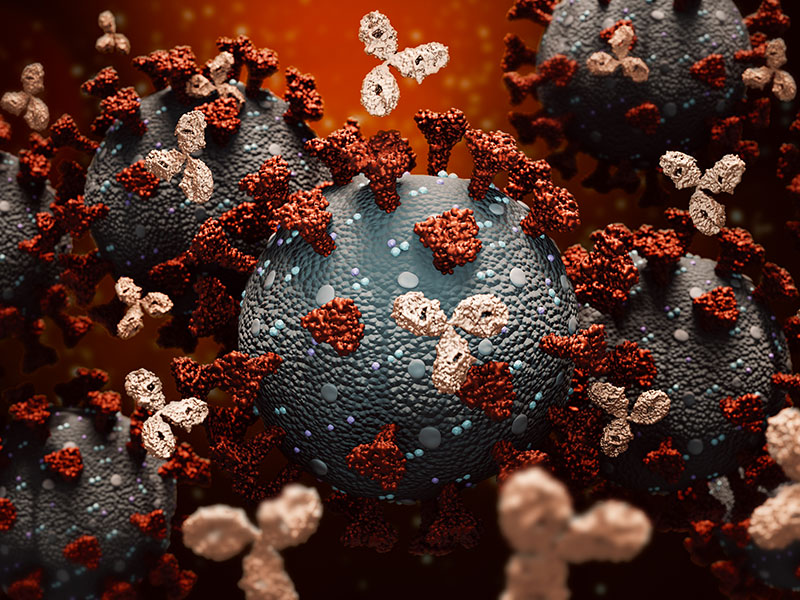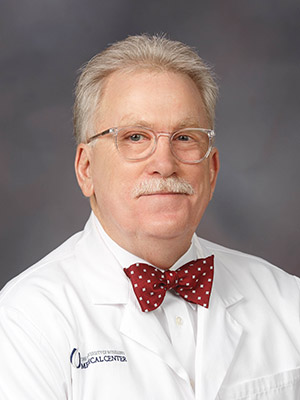Few positives mean good news for antibody study

The University of Mississippi Medical Center has completed its initial biosurveillance study estimating the prevalence of COVID-19 antibodies among employees.
Out of 763 volunteered blood samples, the research team found 19 positives. This rate, about 2.5 percent, is comparable to the prevalence in the general population.
Dr. Gailen Marshall, R. Faser Triplett Chair of Allergy and Immunology at the University of Mississippi Medical Center, led the study.

“The goal of this study was to determine if the protective efforts UMMC has put in place for its employees are effective at preventing COVID-19 transmission,” Marshall said.
In July, Marshall and his team randomly selected employees who volunteered for the study. The volunteers represented three risk categories: high, such as people working in COVID-19 units; medium, including those working in other patient care areas, and low, including those working outside the hospital and clinic environments.
Each volunteer had their blood drawn and tested for SARS-CoV-2 antibodies. The body makes these proteins to fight off specific infections. If someone has antibodies specific to COVID-19 in their blood, that means that they were exposed to and infected by the virus, but have recovered and are not infectious.
Marshall thanked all participants in an August 10 email, telling them that the research team was finishing their analysis. Those with a positive antibody screen received a follow-up email late last week. If you participated and did not receive a follow-up, you tested negative.
Among the 19 volunteers who tested positive, some had high levels of neutralizing antibodies. These antibodies might be particularly effective at fighting a SARS-CoV-2 infection. Marshall asked these individuals if they wanted to participate in a separate study testing the safety and efficacy of convalescent plasma in treating severe COVID-19 disease.
The study also found no substantial differences in the rate of positive tests across the three risk categories.
“What this means is that what is being done in our hospital COVID-19 units in terms of PPE is largely working to protect our employees,” Marshall said. It also suggests that the positive tests could just as likely be community-acquired and not from the hospital environment.
However, he emphasizes that a positive antibody test does not mean that person is completely immune to the virus.
“Nothing could be further from the truth,” Marshall said. “We have seen some case studies where people with documented COVID-19 appear to get sick again. Do not use this information to lower your guard.”
Instead, the results suggest that UMMC should keep up its current protective measures.
The study was an interdepartmental effort, Marshall said, including Dr. Seth Lirette, assistant professor of data science, Dr. Patrick Kyle, professor of pathology, and Dr. Ritesh Tandon. Dr. John Bates, associate professor and assistant professor of microbiology and immunology, as well as support from UMMC leadership.
The group plans to conduct a follow-up study in about six months to determine how many additional people develop antibodies or if any positive participants from the first study develop COVID-19 later.
“My personal gestalt is that these antibodies are probably protective, but not forever. They might be only effective for a certain period of time,” he said.


